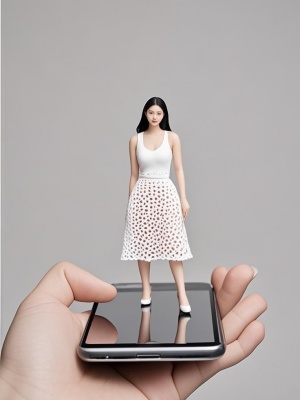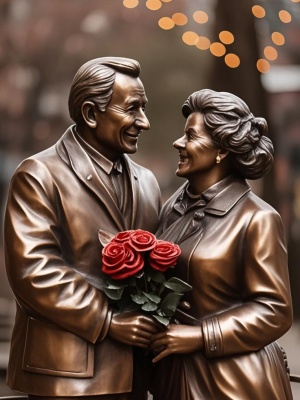Pop Art Wall Sculpture: A Vibrant Fusion of Art and Space
Introduction: The Bold World of Pop Art Sculpture
Pop art wall sculpture represents one of the most dynamic intersections between contemporary art and interior design. Emerging from the revolutionary pop art movement of the 1950s-60s, these three-dimensional artworks bring the movement's iconic bold colors, commercial imagery, and cultural commentary into physical space. Unlike traditional paintings, pop art sculptures create engaging interactions with their environment through their dimensional presence.
At MediaAI's gallery, we've seen growing interest in these vibrant pieces that transform ordinary walls into conversation-starting art installations. From Andy Warhol-inspired soup cans to Roy Lichtenstein-esque comic reliefs, pop art wall sculptures continue to evolve with modern interpretations.
The Evolution of Pop Art in Three Dimensions
From Canvas to Space: The Material Revolution
Traditional pop art paintings gained new life when artists began experimenting with sculptural forms. Key material innovations include:
- Fiberglass for lightweight yet durable structures
- Acrylic layers creating depth and luminosity
- Mixed media incorporating found objects
- LED integration for contemporary light sculptures
Cultural Icons in 3D
Popular subjects transformed into wall sculptures include:
- Consumer product replicas (Coca-Cola bottles, Campbell's soup cans)
- Celebrity portraits with dimensional elements
- Comic strip panels with protruding elements
- Urban and graffiti-inspired layered designs
Problem-Solution Matrix for Pop Art Sculpture Collectors

| Common Challenges | Innovative Solutions |
|---|---|
| Space limitations in modern homes | Modular pop art sculptures that can be arranged in sections |
| Concerns about artwork maintenance | UV-resistant acrylic finishes that preserve colors |
| Desire for personalized pieces | Custom pop art portrait sculptures like those featured in our family scenes collection |
Incorporating Pop Art Sculptures in Modern Interiors
Contemporary interior designers frequently use pop art wall sculptures as focal points in these settings:

- Minimalist spaces needing a bold contrast
- Home offices requiring creative stimulation
- Hospitality venues aiming for memorable decor
- Retail spaces creating brand personality
For inspiration on mixing pop art with other styles, explore our AI art guide which includes tips on creating cohesive art collections.
The Future of Pop Art Sculpture
Emerging trends point toward:
- Interactive sculptures with motion sensors
- Augmented reality enhancements
- Sustainable materials in pop art creations
- AI-assisted custom designs as discussed in Tate's art terms
Conclusion: The Enduring Appeal of Pop Art Sculpture
Pop art wall sculptures continue to captivate audiences by combining nostalgic cultural references with contemporary artistic techniques. Their ability to energize spaces while making artistic statements ensures their ongoing popularity in both private collections and public installations. As the form evolves with new technologies and materials, it remains rooted in pop art's original mission - to bring art into everyday life in bold, accessible ways.

For those interested in exploring how modern technology intersects with pop art, our AI image transformation tools offer exciting possibilities for creating personalized pop art pieces that can later be translated into physical sculptures.